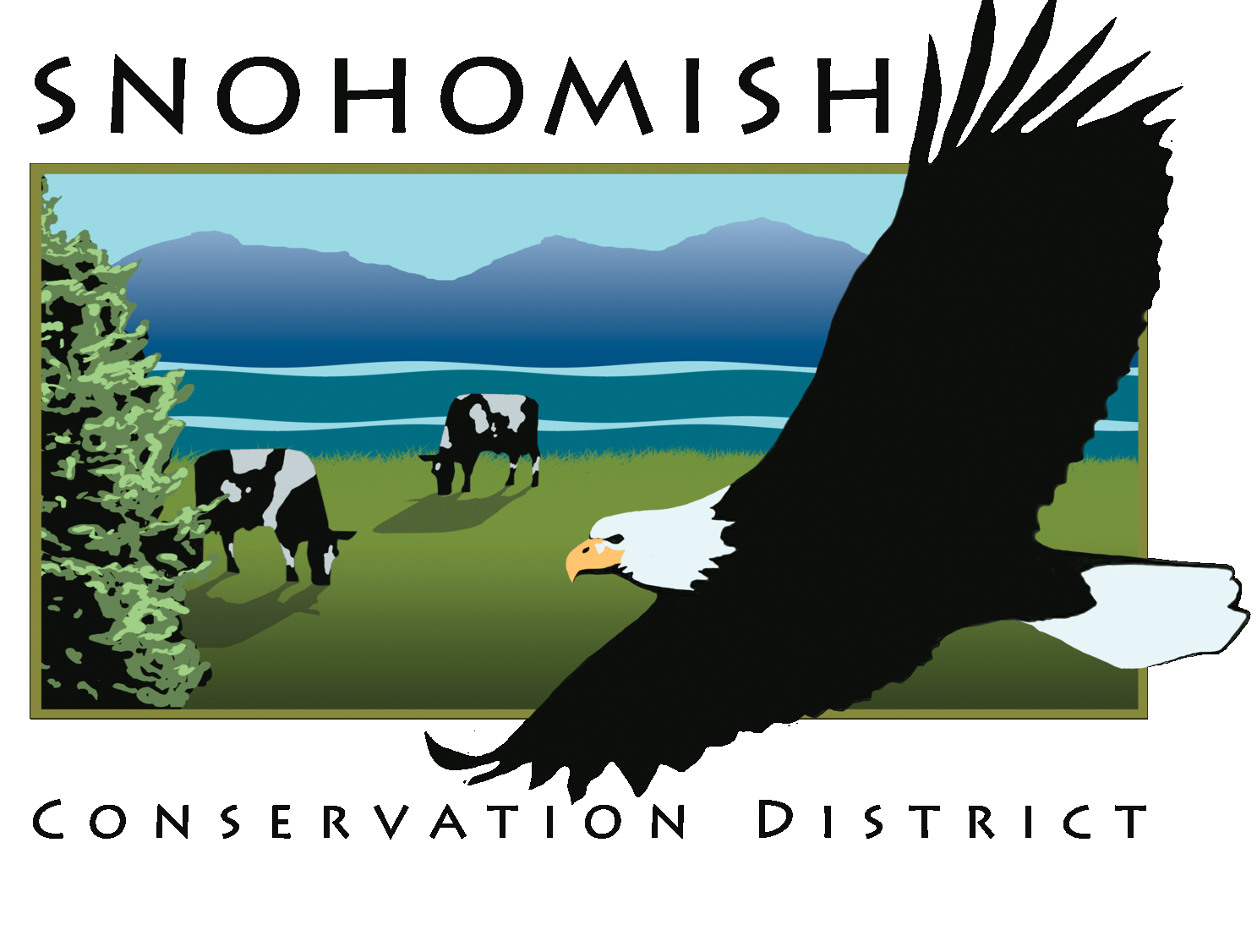Farm & Forest: Growing Agroforestry in Puget Sound
/This article was published in 2022. Learn about our current Agroforestry program.
Imagine a farm growing hay between rows of cider apples. A food forest at a church packed with fruit and nut trees, berries, herbs, and vegetables. A public trail weaving between native plants, hazelnuts, currants, and blueberries. These are snapshots of just a few of the latest projects implemented through our Agroforestry program.
Agroforestry is a land management system that combines agronomy, forestry, and ecology. By integrating perennial trees and shrubs with annual crops and/or livestock, or cultivating non-timber forest crops on forest land, landowners can diversify their income and create a symbiotic relationship that has a wide range of benefits. The habitat created for beneficial insects promotes pollination and natural pest control. Trees provide shade for livestock that, in turn, provide manure for fertilizer. Plant diversity increases soil microbe diversity which improves soil health.
Pilchuck Julia Landing riparian and food forest buffer
Our resident Agroforester, Carrie Brausieck, has been researching agroforestry, providing education, and implementing projects in the region for over five years. Much of her work aligns with our Agriculture Resilience Plan to create resilient, sustainable farmlands in Snohomish County.
“We’re the only organization in the state that has an agroforestry program and a person on staff with an agroforestry title,” Carrie said. “Our program is leading the way for this innovative land use within our county and throughout the state.”
In the past couple of years, interest in agroforestry has increased significantly.
“Governments, organizations, and funders want to invest in land uses that offer multiple benefits, like food and habitat, as well as solutions to climate change like extreme weather adaptation and carbon sequestration,” Carrie explained.
Rising awareness has provided more opportunities for partnerships and our agroforestry program has thrived over the past year.
At the start of 2021, we collaborated with the City of Snohomish to install a harvestable riparian forest buffer at Pilchuck Julia Landing. The native vegetation planted adjacent to the river, layered with fruit and nut-producing trees and shrubs along the trail, allows the public to interact with, harvest from, and appreciate this space in a new way.
Further up the river, we partnered with Raising Cane Ranch to secure a grant from the Western Sustainable Agriculture Research and Education program. This project is studying the economic and ecological impacts of converting a hay crop into an alley cropping system of cider apples and hay. In September, we conducted a farm tour to showcase agroforestry practices and the research model being used by Washington State University to collect data.
Food forests have also garnered a lot of attention this year, thanks to an article in the Everett Herald. We’ve begun planting a two-acre urban food forest in partnership with Seed2Fork Farm, with some assistance from Farmer Frog. Carrie is also collaborating with Snohomish County PUD to help create a community food forest at their Woods Creek Hydro Project site.
Regionally, we’re collaborating with WSU Extension Forestry and Whidbey Island and Skagit Conservation Districts to study agroforestry plantings on saturated farmlands around North Puget Sound. This work was made possible thanks to a Specialty Crop Block grant from the Washington State Department of Agriculture.
Carrie was also invited to speak at a regional agroforestry conference in early 2021 and presented our work on harvestable riparian buffers to agroforestry professionals along the entire west coast, from Canada to California.
“Carrie has been a driving force in bringing agroforestry to light in the PNW,” said Agriculture Program Director Bobbi Lindemulder. “Although it's not a new practice, there just isn't a lot of research done on implementation in our area. This is an exciting time for us looking for alternatives for sustainability and resilience for our farming community.”
Our program will continue to be at the cutting edge of agroforestry this year. The Agroforestry Northwest workgroup, co-founded by Carrie, will provide a professional network for agroforestry professionals around the state and connect landowners to resources for agroforestry design, implementation, and management. Carrie, and several of her partners from the workgroup, will also co-lead an Agroforestry/Forestry track at this year’s annual Washington Association of District Employees (WADE) conference.
“Snohomish Conservation District is at the tip of the spear in regional agroforestry efforts,” Carrie said. “We’ve really only scratched the surface with these innovative practices. The future is bright with possibilities for this program.”




